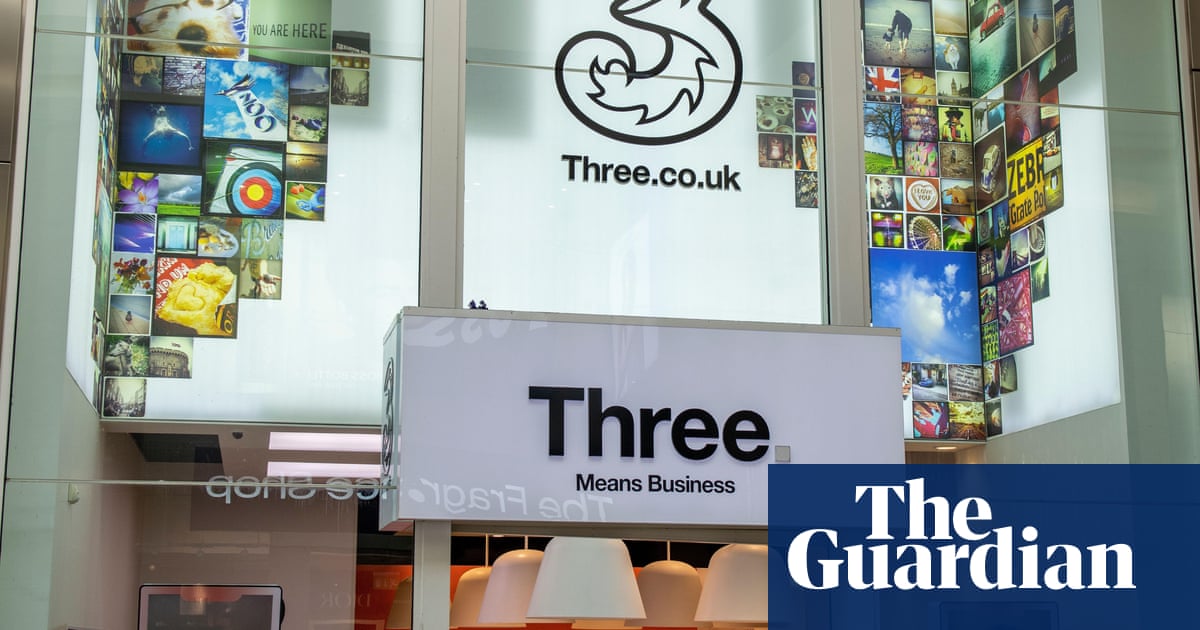My father set up my mobile account with Three when I was a teenager. I’m now 32. He has been diagnosed with cancer, which prompted a review of the family finances.
We realised that he is the owner of the account, even though the bills are in my name, butThree says it can’t process a change of ownership.
Its latest suggestion is to register my father as deceased so they can use their bereavement process to switch the contract to my name. It admits this would affect his credit file but says thatit would inform the credit reference agencies that he is still alive once the change of ownership had completed.
I refuse to put my father through such a conversation.
CF, London
Incredible but true: Three seemingly wants to “kill off” a sick customer in order to name his daughter as the primary account holder for her own mobile phone.
Change of ownership is a standard process offered by most telecoms providers. Without ownership, customers can’t cancel contracts or make other critical decisions. Three, in its responses to customers on its community forum who were in the same situation as you, has claimed that a system update two years ago meant it was unable to do this.
It initially suggested to you that you take out a new contract with a new number, which suggested it has zero understanding of the significance of a lifelong phone number. It then advised you to wait until your father dies, since its bereavement team has miraculous powers denied to the rest of customer services and can do the deed.
When you rejected these unpalatable options and complained to the chief executive’s office, it came up with its brainwave. You can tell from the tone of the email that it really thought this was compassion in action. The bereavement team, it proposed, would call your father with you present and, if he consented to be declared dead, it would complete the transfer process used for deceased customers.
It would, it continued blithely, have to report your father as deceased to all the credit reference agencies, but it would later correct this on his credit file, although it would be unable to circumvent a marker on his record. “I really hope this will work for you,” the letter ended brightly.
The insensitivity of Three’s proposal is breathtaking and the legal and financial ramifications potentially serious. I asked the credit reference agency Experian what the effect would be. Potentially serious, came the answer. “Firstly, it would likely cause problems with future applications because lenders will see the deceased marker, and it will usually lead to the application being refused,” said its consumer expert John Webb. “Secondly, if existing lenders check someone’s credit report, it could result in them closing the account completely.”
At this point, a remarkable thing happened. I contacted Three and it discovered that it could “easily” transfer your name after all. Not only that – it declared that it always did have such a process and blamed an agent “knowledge gap” for saying that it didn’t. Now, that’s a lot of agents who have gappy knowledge. First, the online community support team that advised community web users – including parents with now-adult children and those whose contracts were in the name of an ex-spouse – that the only option was to port the number to a different provider, then port it back again under a new contract. Then the call centre and web chat agents and the complaint escalations team who, for two months, insisted to you that there was no process.
Three even informed the ombudsman – after you took your complaint to it – that the system did not allow for it.
Sign up toBusiness Today
Get set for the working day – we'll point you to all the business news and analysis you need every morning
after newsletter promotion
When I put this to Three, it doubled down and insisted you had been incorrectly advised and that staff would be trained in the policy they knew nothing about.
On my third request for clarification, it admitted that only those suffering bereavement (and financial hardship) qualified, which is what you were told all along. It said it would review its processes in light of your experience.
Ofcom, the telecoms regulator, told me that it did not require providers to offer a change of ownership service, but it would contact Three, as companies are required to give support and empathy to customers in vulnerable situations.
You now own the contract and have been offered (via me – Three initially forgot to tell you) a paltry £75 in goodwill. You are incredulous after finding the impossible was suddenly possible.
“They’ve suddenly prioritised fixing the change of ownership and tried to act like there’s nothing to see here,” you said. “This has been a horrible few years for my family, and this was a simple admin action that could have saved us extra grief.”
We welcome letters but cannot answer individually. Email us atconsumer.champions@theguardian.comor write to Consumer Champions, Money, the Guardian, 90 York Way, London N1 9GU. Please include a daytime phone number. Submission and publication of all letters is subject toour terms and conditions.
